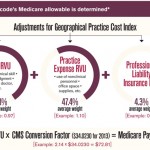Dr. Laing adds, “Without participation in the RUC process, the only avenue available for expressing your concern over evaluation of a code is to meet with or write directly to the CMS. In other words, you are an individual voice instead of a collective voice, and the collective voice is much more powerful in terms of obtaining a value that you think fairly represents what you do. That’s really what it comes down to. And that’s why we need to be part of the RUC.”
The ACR asks rheumatologists to join or renew membership in the AMA so this work may continue. Rheumatology’s ability to be involved in AMA committees and the AMA House of Delegates is dependent upon enough ACR members also being members of the AMA, so every single person who is a member of both the ACR and the AMA is helping with these efforts. Visit the AMA’s membership site to join or renew your AMA membership and receive valuable membership benefits along with helping to advance rheumatology.
Leslie Mertz, PhD, is a freelance science journalist based in northern Michigan.
Help yourself and your patients: Fill out the RUC survey!
To have a say in CMS reimbursement rates, fill out your RUC surveys. That is the plea from rheumatologists serving on the American Medical Association’s Relative Value Update Committee (RUC). The RUC heavily relies on the surveys to make its case to the CMS about appropriate valuation for physician services and procedures.
“RUC surveys are not like the ubiquitous surveys that you get from a store or website customer service that probably never go anywhere or do anything. The RUC surveys really do matter,” says RUC member and rheumatologist Luke Barré, MD, MPH, RhMSUS.
When a CMS code comes up for reevaluation or initial evaluation, each affected professional society, including the ACR, sends out a RUC survey to its members. “The survey participation rate, which varies depending on the code’s use by each society’s members, is scrutinized carefully by the RUC to determine its validity,” explains RUC member and rheumatologist Tim Laing, MD, MACR. “If we don’t meet that threshold, the RUC will deem the survey results unreliable, and our opinions won’t count.”
Dr. Barré adds, “Everybody gets survey fatigue, but a RUC survey is one where filling it out—and filling it out honestly—is ultimately going to impact your bottom line. With the RUC survey, the difference of a few people responding or not responding can make the difference in getting an appropriate CMS reimbursement code. So, yes, filling out these surveys really matters.”

